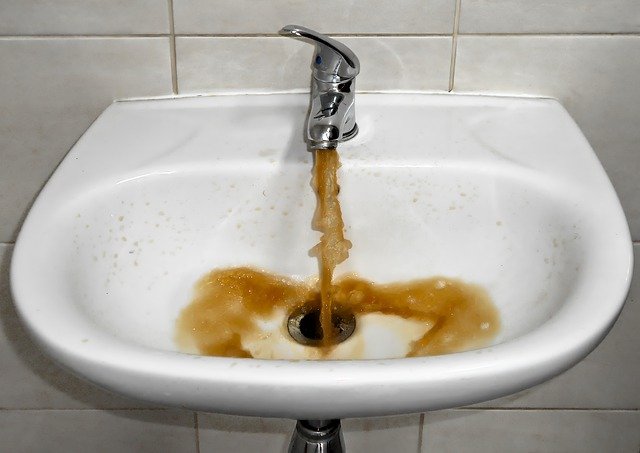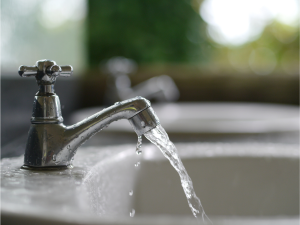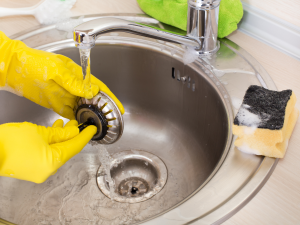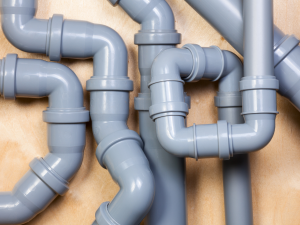When obstruction of sewer lines prevents wastewater from freely flowing through the drainage pipes, backup occurs. The mixture of human waste, water, plumbing fixture waste, and spills is the last thing a homeowner wants to see. But more than the disgust, it can damage property and is also a fire hazard.
Even worse, the backup poses a potential health hazard to humans and animals as it contains viruses and contaminants. If not quickly solved, a sewage blockage can cause severe illnesses to those exposed to it. As such, any sewer backup needs immediate attention from a reputable plumbing and sewer company.
Below we will discuss the health dangers of sewage in your home if not handled with care.
Sewage Backup in Basement Health Risks
The thick, black water that comes from your drainage pipes and plumbing fixtures carries contaminants, viruses, bacteria, and parasites. These contaminants can cause diseases, illnesses, and even death for humans and pets. The sewage backup also contains other toxic substances such as pesticides, fungi, protozoa, and residue, causing the following sewage leak health risks:
Risk of Infectious Disease
Wastewater contains infectious agents that can make you sick. These are the most common microorganisms that humans are exposed to from sewer:
- Acanthamoeba – Although microscopic, this organism can cause severe infection to the throat, skin, nose, eye, and central nervous system. The infections are arduous to treat as they weaken the immune system and can be fatal, but early diagnosis offers a higher chance of cure.
- E. Coli – This is the range of bacteria that can cause diseases such as diarrhea, pneumonia, urinary tract infections, abdominal cramps, and even death. Although the bacteria can infect people of all ages, children under five and the elderly can especially get extremely sick. E. Coli can be very serious, leading to death if the patient doesn’t receive hospital care.
- Leptospirosis – This bacteria is caused by contact with contaminated water and can cause diseases to both humans and animals. Its symptoms in humans can closely be mistaken for other diseases and may not show at all in some cases.
- Hepatitis – Like leptospirosis, hepatitis is a great risk to anyone who comes in contact with wastewater. Exposure to sewage increases the risk of viral hepatitis infection, which is potentially life-threatening.
- Salmonella – Salmonella is one of the most prevalent bacteria in sewer backup. It typically lives in the intestines of humans and animals and is shed in feces. It causes salmonellosis, a common bacterial disease that affects the intestinal tract. Once in the intestines, salmonella infects the bloodstream and can cause death if no antibiotic treatment is received.
- Heliobacter Pylori – It can easily be ingested as it’s a component rich in sewage backup. Once ingested, this bacterium stays in the digestive tract and causes inflammation; after years, it can lead to stomach ulcers.
- Encephalitis – Breathing sewage backup causes a risk to encephalitis – an acute inflammation of the brain. In severe cases, the viral infection causes death if the person develops swelling in the brain.
Risk of Death
Sewer backup lets off toxic gases, mainly hydrogen sulfide and carbon monoxide, and sewer gas, also known as methane. With sewage backup in the basement, the risk of inhaling these airborne contaminants and gases is high.
- Hydrogen sulfide: Exposure to this gas will irritate the eyes, throat, or nose. It may also be accompanied by difficulty in breathing and a depressant effect on the central nervous system.
- Carbon monoxide: Exposure to carbon monoxide in sewage backup can cause headaches, dizziness, nausea, and in some cases, vomiting. High levels of gas will cause unconsciousness or even death. Exposure to the gas in moderate or high levels over long periods is likely to increase the risk of heart disease.
Risks of Explosion
The greatest danger of sewer backup, or any other basement flood, is explosions. Often, the basement carries a host of high-voltage live electricity wires. Sewage backup on live electricity poses many threats such as electrocution, electrical fires, and gas explosions. As such, the dangers associated with a flood from sewage backup shouldn’t be taken lightly.
To stay safe, ensure power is shut off before entering the water-filled basement floor. If you need to enter to shut off the power (which is often the case), wear rubber-soled shoes when stepping on any sewage flooded area. You also want to avoid coming into contact with any metallic object; wear rubber gloves or use a wooden stick to put off electricity.
Most Common Asked Questions About Sewage Backup Health Risks
Can Sewage Backup Make You Sick?
Any contact with a sewage backup is likely to make you sick. The infectious bacteria, viruses, fungi, and other contaminants can land you in the emergency room. That said, if you feel a little bit sickly after a sewage backup in your home, ensure you visit a doctor for a diagnosis.
The best way to prevent sewage backup health risks is to call a qualified plumber as soon as it happens. But better than restoring the damage, it’s even more vital to prevent sewer backup health risks. Have an expert remediation company clean the backup. Simply mopping the contaminated area is not enough. Spills often penetrate beyond the surface, causing even more potential health risks such as mold in the future.
Is Inhaling Sewage Backup Gas Harmful?
The repelling smell from sewage backup is harmful to your health. Inhaling these vapors exposes you to airborne contaminants and gases that, if inhaled over a long period, will harm your body or lead to death. One common health concern with sewage backup airborne contaminants is asthma. When inhaled, the contaminants cause upper respiratory system infections.
To get rid of sewage gas as you wait for help, ensure all windows are open for the free flow of gas. Plus, spray or sprinkle odor-neutralizing substances such as undiluted white vinegar and baking soda to reduce the harmful gas. Alternatively, use a breathing mask when accessing the contaminated room.
Is Your House Safe After a Sewer Backup?
The safety of a house after sewer damage highly depends on the level of damage caused. A fully submerged basement or floors will render your home a health hazard. Besides the sewage backup being disgusting and gross, they contain harmful pathogens and odorous gases. If your sewage backs up to the basement or any other area of your house, it needs to be cleaned up immediately.
Sewage Backup, What Next?
A sewage blockage in the basement can seem like an easy cleanup. But far from it, sewage backup is a hazardous situation. It poses potential health risks that can escalate quickly.Due to the sensitive nature of sewage backup cleaning, it is safer to leave the cleanup and remediating of the sewage systems, floors, and all affected areas to the experts. At Clover Contracting, we’re well conversant with the dangers and health risks of sewer damage and aim at restoring your backup damage while preventing the risks associated with it.




